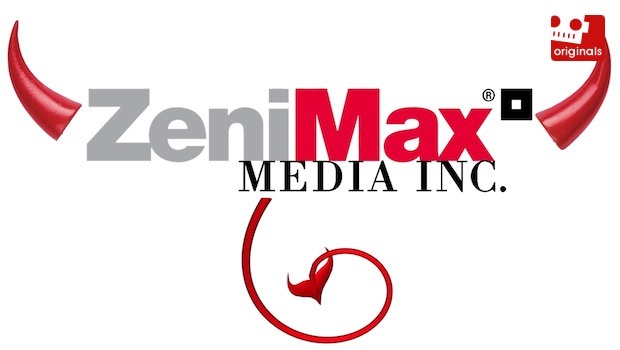[Editor’s note: Brock Janikowski is currently a law school student with an interesting take on the recent ZeniMax scandal. He will be contributing to Destructoid every once and a while with features focusing on the fascinating role law plays in the world of videogames. Also, his name is Brock … which is awesome. -Chad.]
What is in a name? If you ask indie developer darling Notch or publishing behemoth ZeniMax, they might say it means quite a lot. Mojang v. ZeniMax has kicked off, a trial that will decide the fate of the title for Notch’s upcoming game Scrolls, but many of us are still shaking our heads.
With seemingly so little to gain and so much much money to lose for the parties involved, is ZeniMax really just evil, or is there something more to the story?
You’ve probably already read the first indications that there is more to the Notch vs. Bethesda debate than angry bloggers may have led folks to believe. Maybe it was a feeling of loyalty to Bethesda or a skepticism over what seemed like an arbitrary attack on Notch.
Regardless of the reason, since the start of this debacle I’ve felt a need to dig deeper. After all, Bethesda Marketing VP Pete Hines’ statement that, “Nobody here enjoys being forced into this,” doesn’t mean much unless there is actual justification.
So, putting my legal training to the test, I dove into researching Trademark Law in an effort to understand whether ZeniMax really was an evil corporation crushing the future of gaming under its uncaring heels, or if just maybe there could be another explanation. What I found was that an issue called Trademark Maintenance may indeed be forcing ZeniMax’s hand.
Trademark Law is traditionally all about protecting consumers from being confused as to the origin or composition of a product. If a trademark holder takes the time to make a mark famous, others aren’t allowed to leech off that success. Therefore, if a court finds that consumers might be confused by the name of a new product, a court may find that the name infringes on the trademark holder’s mark and can therefore not be used. Once a trademark holder establishes its mark though, it has to maintain the mark.

Part of Trademark Maintenance is the idea that a trademark holder must “police” its mark. If ZeniMax becomes aware another developer might be infringing upon its marks, it must address the issue, possibly by sending a letter and asking the developer to stop using the mark, or failing that, by taking the developer to court. If ZeniMax, or any corporation in this situation does nothing, a future court may find that a trademark has become “diluted” and is therefore not deserving of trademark protection.
This tends to lead to some rather ridiculous cases for companies with famous trademarks; McDonalds for example has a long history of suing the “little guy” for using names that might be “confusingly similar.” Just a few cases include a man named Norman McDonald who was forced to change the name of his restaurant, and another man by the name of McAllan who won a case brought against him for opening a restaurant under his name.
ZeniMax has stated that they believe consumers could potentially be confused by the similarity between The Elder Scrolls mark and Notch’s Scrolls. Is ZeniMax truly worried that people won’t be able to tell the difference? Possibly, but even if the company has little fear of such confusion, allowing Scrolls to slide by could create an unfortunate precedent should a larger, future trademark issue arise.

Keep in mind as well that Notch’s offer to change or alter the Scrolls name doesn’t count for much in this case. If Scrolls became Scrolls: Insert Sub-Title Here the potentially confusing word “scrolls” still exists. In fact, adding something to Scrolls might make is seem even more similar to The Elder Scrolls. The only thing that would truly end this case would be Notch dropping the Scrolls title altogether, an option Notch and Mojang have yet to offer.
But Scrolls will most likely be a niche game with a niche audience, so then why spend all this time and money to litigate a case against a poor indie developer? It’s the reality of Trademark Law. If you don’t make efforts to maintain your mark, you may lose your mark.
I believe that Bethesda and ZeinMax are taking very little joy in this litigation, but if they are worried about the long-term survivability of The Elder Scrolls mark, the companies may well feel they have no choice but to take Notch to court. Whether or not this is right, or whether Trademark Law should be revised to avoid “trademark maintenance” litigation are entirely relevant questions to ask, but this case won’t be addressing these issues.

So is ZeniMax evil? I personally don’t think so, but that determination is up for debate. I think the company is following what is ultimately an unfortunate aspect of Trademark Law and Notch is suffering as a result. Maybe adherence to this flawed system still makes ZeniMax evil, but if it were a choice between potentially losing your ability to protect your famous trademark and suing an indie developer, what would you do?


